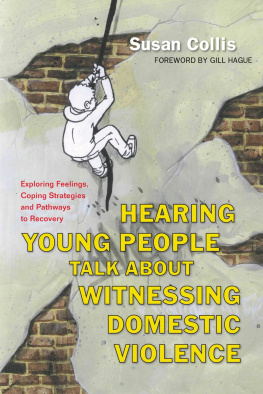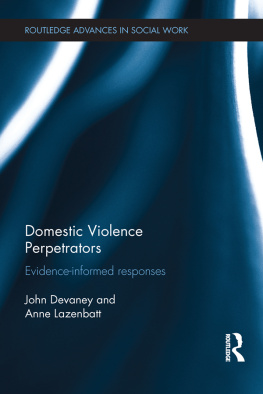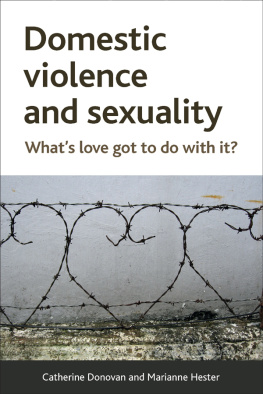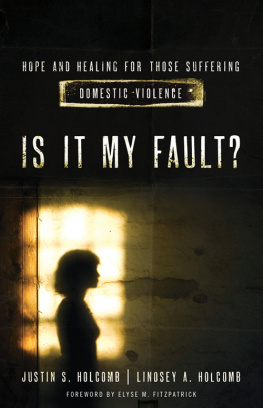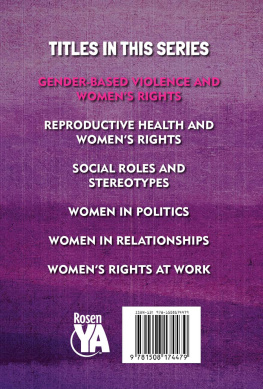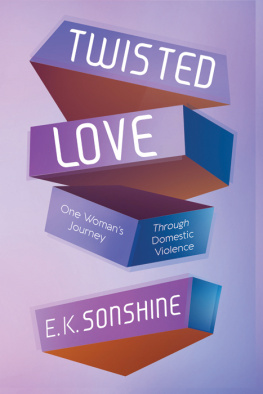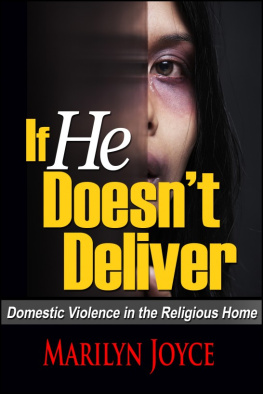
Hearing Young People Talk About Witnessing Domestic Violence
First published in 2013
by Jessica Kingsley Publishers
116 Pentonville Road
London N1 9JB, UK
and
400 Market Street, Suite 400
Philadelphia, PA 19106, USA
www.jkp.com
Copyright Susan Collis 2013
Foreword copyright Gil Hague 2013
All rights reserved. No part of this publication may be reproduced in any material form (including photocopying or storing it in any medium by electronic means and whether or not transiently or incidentally to some other use of this publication) without the written permission of the copyright owner except in accordance with the provisions of the Copyright, Designs and Patents Act 1988 or under the terms of a licence issued by the Copyright Licensing Agency Ltd, Saffron House, 610 Kirby Street, London EC1N 8TS. Applications for the copyright owners written permission to reproduce any part of this publication should be addressed to the publisher.
Warning: The doing of an unauthorised act in relation to a copyright work may result in both a civil claim for damages and criminal prosecution.
Library of Congress Cataloging in Publication Data
Collis, Susan, 1948
Listening to young people who have experienced domestic violence / Susan Collis.
p. cm.
Includes bibliographical references and index.
ISBN 978-1-84905-378-5 (alk. paper)
1. Family violence. 2. Victims of family violence--Rehabilitation. 3. Youth and violence. 4. Abused children. I. Title.
HV6626.C647 2012
362.8292--dc23
2012031796
British Library Cataloguing in Publication Data
A CIP catalogue record for this book is available from the British Library
ISBN 978 1 84905 378 5
eISBN 978 0 85700 735 3
Printed and bound in Great Britain
Hearing Young People Talk About Witnessing Domestic Violence
Exploring Feelings, Coping Strategies and Pathways to Recovery
Susan Collis
Foreword by Gill Hague

Jessica Kingsley Publishers
London and Philadelphia
Foreword
I am pleased to write the foreword for this interesting and creative addition to the literature on young people and domestic violence. Building on an innovative, reflexive study, the book uses in-depth interviews with young people which are then sympathetically drawn out to build a graceful and powerful analysis of their stories.
A brave, unusual book in many ways, it presents hidden and silenced voices, full of hurt and trauma but in the end, in some cases anyway, leading to peace, hopefulness and resolution. The often courageous and painful journeys described lie at the heart of insightful contributions from the author, adding to our understanding of the devastating impacts domestic abuse can have on children and young people.
Sue Collis categorises the voices of the young people as knowing, hurting or suffering, and healing. Sometimes the voices are agonised, confused and guilty, sometimes aggressive but always complex, leading into the multiple strands which make up each story of a person, still more or less at the beginning of their life, but traumatised and struggling to transcend abusive experiences.
This issue of domestic violence began to come to the fore in the 1970s and 1980s. However, it was not until the 1990s that the effects on children experiencing, or living with, domestic violence between their parents or carers began to gain attention in this country, with key texts by Audrey Mullender, Liz Kelly, Caroline McGee, Ravi Thiara and Cathy Humphreys, among others, as well as Marianne Hester, Ellen Malos, myself and associates in the Centre for Gender and Violence Research at the University of Bristol. These texts began to right previous wrongs in terms of the scandalous ignoring of domestic violence in child protection cases as well as the issue of neglect in general in the past. Children and young people carried their pain from their domestic violence experiences without anyone much showing the slightest interest.
Now things have changed. Domestic violence is an issue of child protection concern and there are at least some services, both in refuges and elsewhere (although limited and often with threatened funding). There have been various research studies and books. Some of these have begun the project of raising, and learning from, the actual expressed voices of children and young people.
This new book is in this tradition. However, it takes the subject further in terms of the detailed and perceptive analysis presented, and the respect and highlighting accorded to each young persons story and their own view of their story. The book leads on to suggest ways in which such profound and careful listening to young people can lead to improving and deepening practical responses by domestic violence services, activists, social workers, practitioners and policy makers. The resulting suggestions aim to meet the needs of such damaged young people and work towards transformative approaches. Looking at each persons story in multiple ways, leads us, then, to begin to understand the depth and complexity involved which, as helping adults and practitioners, we need to learn to address. The book provides gentle and moving insights and ways forward, responding sensitively to the individual struggles of the young people which were sometimes heroic.
In fact, my own view is that children who experience or live with domestic abuse are often heroes of their own lives, but commonly no-one else recognises this even now. This moving contribution is part of shifting the ground towards those young people, and providing information and insights for professionals and domestic violence survivors themselves. We need to be very grateful to Sue Collis for this unique book. But most of all, our thanks to the young people who courageously shared their stories and pain. The author calls them valiant, and indeed they are. Let us try to learn from them.
Emeritus Professor Gill Hague
Professor of Violence Against Women Studies
Centre for Gender and Violence Research
University of Bristol
Introduction
Its OK to Talk
It seems like a statement of the obvious if we hear someone saying, Its ok to talk. However, it is probable that, in the context of lives steeped in domestic violence, the full significance of what is being said is lost to us. In the framework of experiences of domestic violence, we need to be reminded that, in the past, there has often been a pervasive, all-consuming silence which has permeated everything to do with domestic violence. It would appear that its not been ok to talk. However, there is no desire here to undervalue in any way the tireless efforts which have taken place in this country and others to research the consequences of domestic violence, and break the silence. The courageous efforts of survivors together with researchers are acknowledged and seen as crucial and far-reaching.
Despite these developments, domestic violence occurring in individuals lives may still remain private and hidden, and may stay locked in the home, where it has been perpetrated, perpetuated and silenced. The reasons for this are complex and dependent on varied influences and factors.
I offer here a womans view which is particular in that it is my view, but it does also contain ideas which have been offered to me by other women, who are, like me, survivors.
Historically, women have remained silent because they may think they are to blame for the abuse; they may think they deserve such treatment; they may think that they have to accept it as part of life; they may be too ashamed to talk; they may hope that things will get better, that somehow the man they love will change; they may believe that no one cares or is interested; they may have been coerced into believing that they have made their bed and they must lie on it; they may be just too terrified to talk because they have been intimidated over a protracted period and threatened with appalling consequences; they may fear for their children and think that if they expose the violence they will be held responsible, and their children will be taken away; they may not realise that they are being abused and do not see what is happening as in any way wrong; they may accept the abuse because they are so controlled and have become so powerless that they do not have the confidence or self-belief to make a simple decision like talking to someone; they may believe they are loved by the perpetrator and remain loyal to him; they may love the perpetrator and do not want to expose his abuse because some of the time he is a caring partner and thats what really counts; they may think there is no one they can talk to; they may believe that talking will make things worse; they may be strongly influenced by their particular family culture which states that disgrace is always associated with disclosures of domestic violence. There are many varied, complex reasons why women remain silent.
Next page
